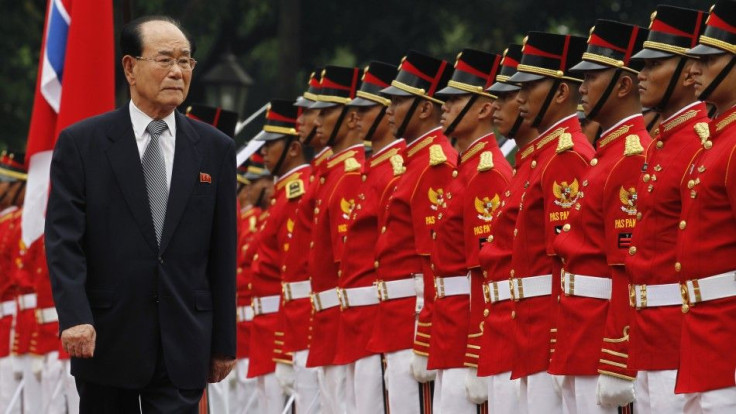UN Suspects North Korea Of Military Shipments To Syria, Myanmar

(Reuters) -- A U.N. panel of experts that monitors compliance with sanctions on North Korea is investigating reports of possible weapons-related shipments by the Communist state to Syria and Myanmar, the panel said in a confidential report seen by Reuters on Thursday.
The DPRK (North Korea) continues actively to defy the measures in the (sanctions) resolutions, the panel said in the report, which it submitted to the Security Council's North Korea sanctions committee earlier this week.
Member states did not report to the committee any violations involving transfer of nuclear, other (weapons of mass-destruction)-related or ballistic missile items, it said. But they did report several other violations including illicit sales of arms and related materiel and luxury goods.
U.N. panel of experts' sanctions reports are highly sensitive. China, which is named in the report as a transit hub for illicit North Korean arms-related breaches, has prevented the 15-nation Security Council from publishing past reports and may do so with the latest one, U.N. envoys have told Reuters.
Although the (sanctions) have not caused the DPRK to halt its banned activities, they appear to have slowed them and made illicit transactions significantly more difficult and expensive, the panel's report said.
One of the cases involving illicit arms trade with Syria was reported to the council's sanctions committee last month.
In April 2012, France reported to the committee that it had inspected and seized in November 2010 an illicit shipment of arms-related materiel originating from the DPRK and destined for Syria, the report said.
The shipment, which was on board the ship M/V San Francisco Bridge, was said to be containing copper bars and plates.
However, France's inspection of the cargo revealed that it contained brass discs and copper rods used to manufacture artillery munitions (pellets and rods for crimping cartridges and driving bands) and aluminum alloy tubes usable for making rockets, the panel said.
Another case involved a 2007 shipment of propellant usable for SCUD missiles and other items that could be used for ballistic missiles. The panel had referred to it in last year's report but added details about a Syria connection and confirmed that it had been transported via China.
This shipment originated in the DPRK, was trans-shipped in Dalian (China), and Port Kelang (Malaysia), and transited through other ports, the report said. It was en route to Latakia, Syria.
Although both shipments were made before the Syrian uprising began, diplomats said they were worrying because it showed the kinds of items Damascus had been trying to add to its arsenal - and the aid it received from North Korea and China.
The panel said it could not prove North Korea continued to maintain ballistic missile cooperation with Iran, Syria and other countries, but notes that it would be consistent with reports of the DPRK's long history of missile cooperation with these countries and with the panel's observations.
(Reporting By Louis Charbonneau and Michelle Nichols; Editing by Peter Cooney)
© Copyright Thomson Reuters 2024. All rights reserved.











